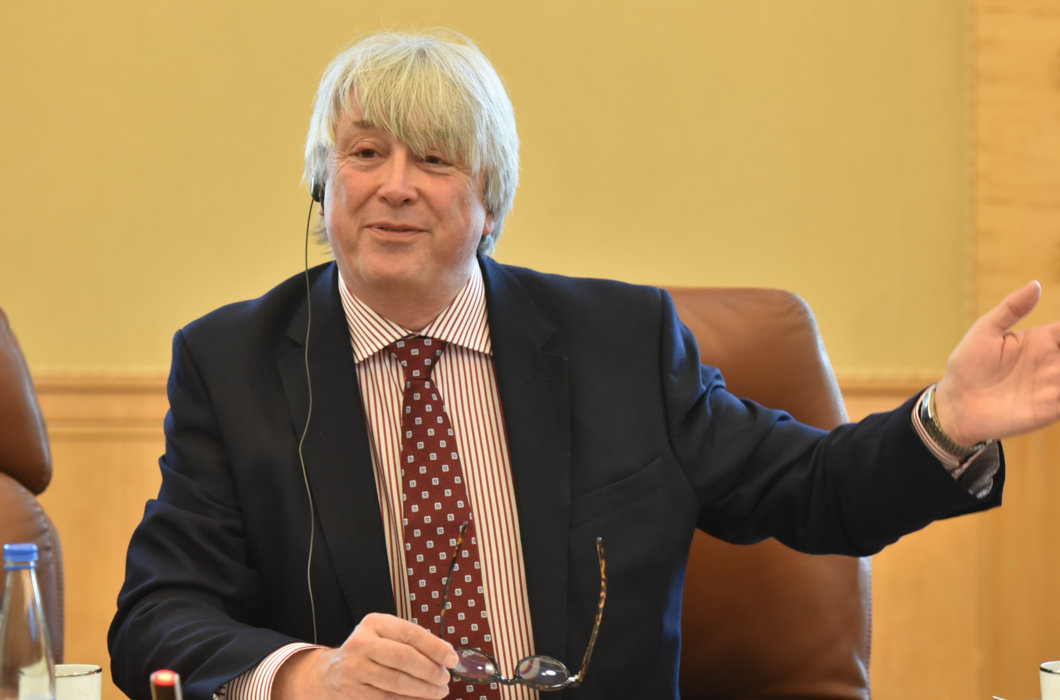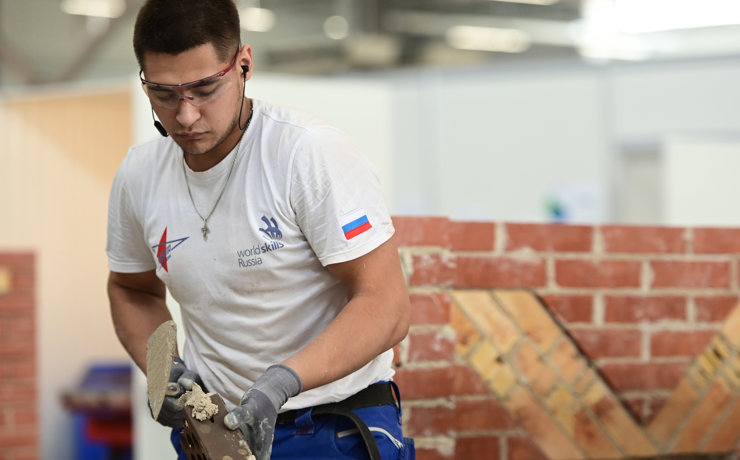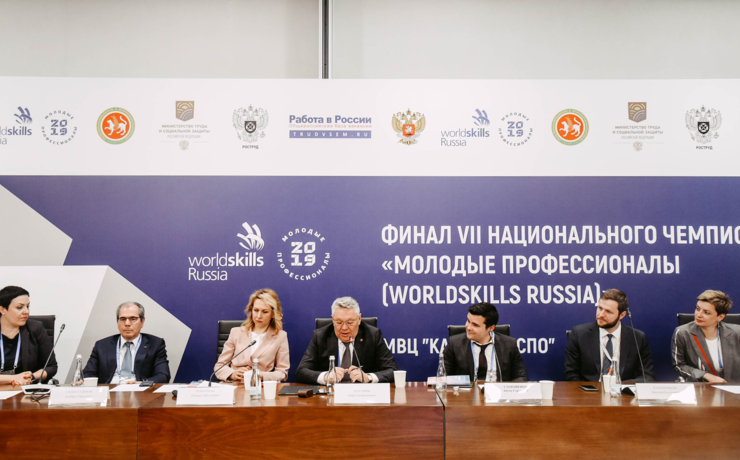Simon Bartley: “We could not make the world better if we only paid attention to 56 WorldSkills gold medallists”
![]() 23.05.2019, 14:47
23.05.2019, 14:47
Countries begin to realize that the economy depends not only on the academic educational system, but also vocational training on skilled jobs aimed at creating a balanced fusion of personnel within the national labor market. This was said by the WorldSkills International President Simon Bartley during his visit to the 7th WorldSkills Russia National Competition in Kazan. It is held from 20 till 25 of May in Kazan where 1 500 competitors from all over the country are participating in 91 skills.
National competitions are held every year in 81 member-countries of the WorldSkills International movement. The finalists represent their country at the WorldSkills Competition, which is held annually, and in 2019 Russia will become the host of the event for the first time .
However, victory can be hardly considered as the main goal of the WorldSkills International movement. “We could not make the world better if we only paid attention to 56 gold medalists that we discover every two years. We would be able to say that the world changes to the better if 56 million people were to take part at the competition and improve their skills by at least 1%,” said Simon Bartley. Of course, medalists are a very good indicator: they demonstrate their skills, proficiency, but they are only a part of the global goal and a role model. They become experts of the WorldSkills movement, and share their knowledge working as mentors.
“On the one hand, the competition is a central event for the 85 regions of Russia, which have been training their competitors the whole year in order to participate at the WorldSkills Russia National Competition. On the other hand, this year it became a dress rehearsal for the WorldSkills Competition to be held in August. As for the WorldSkills Competition Kazan 2019, the President of the Russian Federation gave us the following two tasks: hold the event at the best level in accordance with international standards and transform the personnel training programme," said the Deputy Director General of the Union “Young Professionals (WorldSkills Russia)” Alina Doskanova.
“Vocational education has not been given enough attention for a long period of time in Russia; thus, both masters of vocational education and students have lost their interest in this field. Later when we realized that the system needs to be transformed, it was decided to apply personnel training standards offered by WorldSkills. They are developed by the Expert Community represented by 81 countries and reflect the content of the profession in the real sector,” said Alina Doskanova. “Technologies are developing rapidly: from manual labor we shift to digital economy, there are more and more new skills related to digitalization, and the infrastructure of colleges needs to be updated not once every 10 years, but on an annual basis. Thanks to the WorldSkills movement every year we update standards, as well as the infrastructure and, most importantly, we invest in the development of people”.
In addition to solving the problem of modernizing the standards of traditional skilled jobs like Welding, Restaurant Service, Joinery, Jewelry, etc., WorldSkills helps to quickly implement the future skills into the training. By conducting research and using global analytics data, experts determine professions that will be highly demanded in the future and develop a skill concept that is included in WorldSkills movement, then test it at a competition and identify the qualifications necessary for mastering it.
Based on these data, they create professional and educational standards to be introduced into the personnel training system. Thus, in 2016, experts developed a skill to solve a local issue of personnel training for Russia in the segment of UAV Operation. According to the WorldSkills Russia International Expert in UAV Operation Oleg Ponfilenok, General Director of the “Copter Express” company engaged in the development of drones for industry and education, currently the world is lacking around 150k specialists in this sphere to effectively use UAV systems in various fields such as agriculture, construction, security monitoring, oil and gas, search and rescue of people, delivery of goods.
In order to prepare such people, it is necessary to develop brand new educational standards, and training methods. “It is thanks to WorldSkills that we were able to develop this skill and effectively distribute it in Russia in the record time - two years. First being apresentation skill it is now included in the main sector of skills. We created the educational and professional standards completely from a scratch. The competitions allow us to demonstrate the best practices and based on this experience we manage to influence such serious institutions as the Ministry of Education, the Ministry of Labor,” said Oleg Ponfilenok. -This can be also done in other countries, so we are starting to operate on an international level. Already in August, for the first time the skill will be presented at the WorldSkills Competition as part of the FutureSkills segment. In addition to Russia, more than 7 countries will take part in the competition, although a much greater number of countries needs professionals in this field."
This is an example that can be used not only in UAV Operation but also in many other specializations within the FutureSkills segment. For example, Quantum Technologies, Neurointerface Design, Space Systems, etc. Russia will demonstrate its best personnel training practices for future skills in a special area of 10 thousand square meters within the framework of the WorldSkills Competition Kazan 2019.
Press Office of “Young Professionals (WorldSkills Russia)" Union


